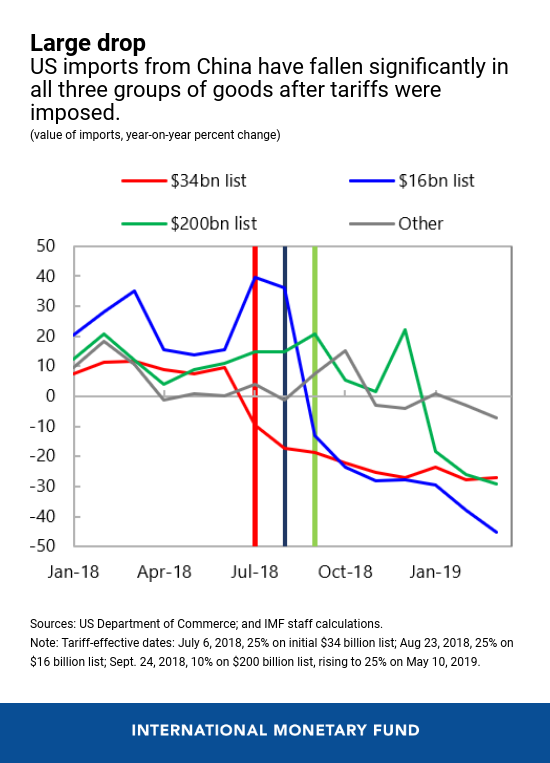The Post-Roe Shift: Over-the-Counter Birth Control And Its Implications

Table of Contents
The overturning of Roe v. Wade has sparked intense debate about reproductive rights and access to healthcare. A significant area of focus is the potential for increased access to over-the-counter birth control. This shift could dramatically alter reproductive healthcare landscapes, impacting women's health, family planning, and public health initiatives. This article explores the implications of making birth control readily available without a prescription.
<h2>Increased Accessibility and its Benefits</h2>
The potential for over-the-counter birth control offers several key advantages. Increased accessibility translates to improved convenience and affordability, ultimately empowering women's reproductive health choices.
<h3>Improved Convenience and Affordability</h3>
One of the most significant benefits of over-the-counter birth control is the increased convenience and affordability it provides. This could revolutionize access to contraception for many women.
- Reduced doctor visit costs: Eliminating the need for a doctor's visit for a prescription significantly reduces out-of-pocket expenses.
- Elimination of insurance limitations: Many women face limitations with their insurance coverage for birth control. Over-the-counter options bypass these hurdles.
- Easier purchase for those in rural areas: Access to healthcare providers, especially specialists, can be limited in rural areas. Over-the-counter availability removes geographical barriers.
- Increased access for low-income individuals: The cost of birth control, including doctor visits and prescriptions, can be prohibitive for low-income individuals. Over-the-counter options offer a more affordable alternative, promoting greater contraceptive use and reducing unintended pregnancies.
This improved access could lead to a significant decrease in unintended pregnancies, positively impacting public health initiatives and reducing the strain on healthcare resources associated with managing unintended pregnancies and births.
<h3>Empowering Women's Reproductive Health Choices</h3>
Making birth control readily available over-the-counter directly empowers women to take control of their reproductive health.
- Increased autonomy: Women can make timely decisions about their contraception without relying on appointments and potentially lengthy wait times.
- Reduced reliance on healthcare providers: While healthcare providers remain crucial, OTC birth control reduces dependence on them for basic contraceptive access.
- Ability to make timely decisions about contraception: Spontaneous or urgent needs for contraception can be addressed immediately, improving effectiveness.
This increased autonomy contributes to improved overall health and well-being by allowing women to prioritize their reproductive health needs and make informed choices aligned with their personal circumstances.
<h2>Potential Challenges and Concerns</h2>
While the benefits are substantial, the transition to over-the-counter birth control also presents challenges that require careful consideration. Potential misinformation and improper use, coupled with concerns about equity and access for marginalized communities, need proactive addressing.
<h3>Misinformation and Improper Use</h3>
The lack of direct professional guidance with over-the-counter birth control raises concerns about potential misuse and negative health consequences.
- Need for comprehensive education and readily available information: Public health campaigns are crucial to provide accurate information on proper usage, potential side effects, and contraindications.
- Risk of self-diagnosis and treatment: Women may attempt to self-diagnose and treat conditions that require professional medical attention.
- Potential for increased emergency room visits related to contraceptive misuse: Improper use can lead to complications requiring emergency medical care.
Addressing these concerns requires comprehensive public health campaigns emphasizing responsible usage, accurate information dissemination, and readily available resources to answer questions and clarify doubts.
<h3>Equity and Access for Marginalized Communities</h3>
Ensuring equitable access to over-the-counter birth control is paramount, particularly for marginalized communities who already face significant barriers to healthcare.
- Importance of ensuring equitable distribution and affordability for all populations: Price points must be accessible to all socioeconomic groups, avoiding further marginalization.
- Addressing potential barriers to access in underserved areas: Distribution strategies need to overcome challenges in rural and underserved communities.
- Considering language barriers and cultural sensitivities: Educational materials and outreach programs must be culturally sensitive and linguistically appropriate.
Targeted outreach programs and culturally competent healthcare initiatives are vital to bridge these gaps and ensure that all women have equal access to this important aspect of reproductive healthcare.
<h2>The Role of Government and Healthcare Providers</h2>
The successful implementation of over-the-counter birth control requires a collaborative effort between government agencies, healthcare providers, and public health organizations.
<h3>Regulatory Oversight and Public Health Initiatives</h3>
Government regulation and public health initiatives play a crucial role in ensuring the safe and effective use of over-the-counter birth control.
- Clear labeling requirements: Comprehensive and easily understandable labeling is vital for consumers to make informed choices.
- Educational materials for consumers: Easily accessible and reliable information about different types of birth control and their appropriate use is essential.
- Monitoring of adverse events: Robust systems for tracking and responding to adverse events are crucial for public safety.
- Public health campaigns to improve contraceptive literacy: Targeted campaigns are needed to improve knowledge and understanding of contraception.
Collaboration between regulatory agencies like the FDA and public health organizations is crucial to ensure the safety and efficacy of these products.
<h3>The Continued Role of Healthcare Professionals</h3>
Even with over-the-counter availability, healthcare providers will maintain a crucial role in reproductive healthcare.
- Providing consultations and guidance: Healthcare providers can offer personalized advice and guidance on choosing the right method.
- Managing side effects: Professionals are essential for managing potential side effects or complications.
- Addressing complex reproductive health needs: They will continue to be necessary for addressing more complex reproductive health issues.
- Personalized contraceptive counseling: Individualized counseling is crucial for selecting appropriate methods and addressing specific concerns.
The role of healthcare providers will shift towards a more consultative and supportive one, emphasizing education, counseling, and management of complex cases, rather than solely prescription provision.
<h2>Conclusion</h2>
The shift towards over-the-counter birth control presents both significant opportunities and substantial challenges. Increased accessibility offers substantial benefits for women's reproductive health and family planning. However, addressing potential risks, ensuring equitable access, and implementing robust public health initiatives are paramount. The future of reproductive healthcare demands a collaborative effort among government agencies, healthcare providers, and community organizations to ensure safe and effective access to over-the-counter birth control for all. This requires continued open discussions and informed decision-making regarding over-the-counter birth control options and their implications for public health.

Featured Posts
-
 Pga Championship Upset In The Opening Round As Unlikely Leader Emerges
May 17, 2025
Pga Championship Upset In The Opening Round As Unlikely Leader Emerges
May 17, 2025 -
 The New Cold War A Battle For Rare Earth Dominance
May 17, 2025
The New Cold War A Battle For Rare Earth Dominance
May 17, 2025 -
 Conservative Uproar Leads To Comey Removing Instagram Post
May 17, 2025
Conservative Uproar Leads To Comey Removing Instagram Post
May 17, 2025 -
 Tam Krwz Ke Jwtwn Pr Mdah Wayrl Wydyw Ky Khany
May 17, 2025
Tam Krwz Ke Jwtwn Pr Mdah Wayrl Wydyw Ky Khany
May 17, 2025 -
 Rfk Jr S Hhs To Halt Routine Covid Vaccine Recommendations For Children And Pregnant Women
May 17, 2025
Rfk Jr S Hhs To Halt Routine Covid Vaccine Recommendations For Children And Pregnant Women
May 17, 2025
Latest Posts
-
 Latest Update Chinas Ambassadors Stance On Formal Trade Deal With Canada
May 17, 2025
Latest Update Chinas Ambassadors Stance On Formal Trade Deal With Canada
May 17, 2025 -
 China And Canada Ambassadors Statement On A Potential Trade Agreement
May 17, 2025
China And Canada Ambassadors Statement On A Potential Trade Agreement
May 17, 2025 -
 Ambassadors Remarks On China Canada Trade Deal Prospects
May 17, 2025
Ambassadors Remarks On China Canada Trade Deal Prospects
May 17, 2025 -
 Chinas Ambassador On Potential Formal Trade Agreement With Canada
May 17, 2025
Chinas Ambassador On Potential Formal Trade Agreement With Canada
May 17, 2025 -
 Canada China Trade Relations Ambassadors Remarks On Formal Trade Deal
May 17, 2025
Canada China Trade Relations Ambassadors Remarks On Formal Trade Deal
May 17, 2025
